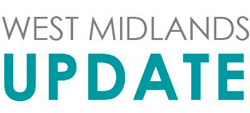D E Ball’s top bookkeeping advice for Telford start ups…

DE Ball offer excellent insight into Bookkeeping for Telford/Shropshire start ups.
Just starting out in the world of business? Overwhelming right? With the endless flow of paperwork flooding into your office, the compromise between balancing the books and bringing in the customers can often prove too much for the fledgling business owner and their newly found company will fail to gain any momentum.
In order to avoid this, you must have a straight forward plan on how to tackle your finances. Where the time demands of your business leave no time to maintain your accounting records, the Telford Bookkeeping team can take that worry and responsibility away from you. So, where do you begin?
Begin keeping records immediately:
Routine bookkeeping can save you untold time in the future. For most small businesses, filing receipts and invoices only takes half an hour a week. Keep on top of all your comings and goings by simply pencilling this into your weekly schedule and avoid any build up. Especially at this time of year when we are all spending more than we can keep track of. Since HMRC provides businesses with a year to complete their tax returns, it’s really not worth leaving it all until the last minute.
Separate Personal And Professional Accounts:
If you fail to differentiate between personal possessions (cars, houses, clothes) and business expenses you could receive a considerable fine from HMRC. By opening up a separate checking account for your business, you know that any money spent from it can be considered tax exempt preventing you from trawling through each individual purchase to prove this.
Budget For Tax:
Upon deducting your expenses from your income, what you are left with is your taxable profit. For most businesses, around 20 to 30% of this money will be owed as taxes, so you need to make sure there is enough left in your budget at the end of the year to cover this expense.
Sole traders won’t need to pay corporation tax, however for everyone else this is an mandatory payment. As well as this, all companies must contribute towards National Insurance and VAT, along with PAYE tax if you function as a limited company. It’s easy to lose track of just how much you owe, so putting aside 20% of your earnings each month will mean there is always cash reserved for this purpose.
Understand The Benefits Of Going Limited:
Many startup ideas are born over a catch up brew and a biscuit around the kitchen table. Operating as a sole trader is fine, until your company begins expanding, hiring employees and housing valuable assets you run the risk of losing more and more. Corporation tax is a small price to pay for increased business protection. By registering as a limited company, you ensure your personal finances remain unaffected should your business go under. However, you must always seek expert advice if you are unsure whether going limited is the right option for your business.
For more information on Bookkeeping Telford please call DE Ball or visit our website.
